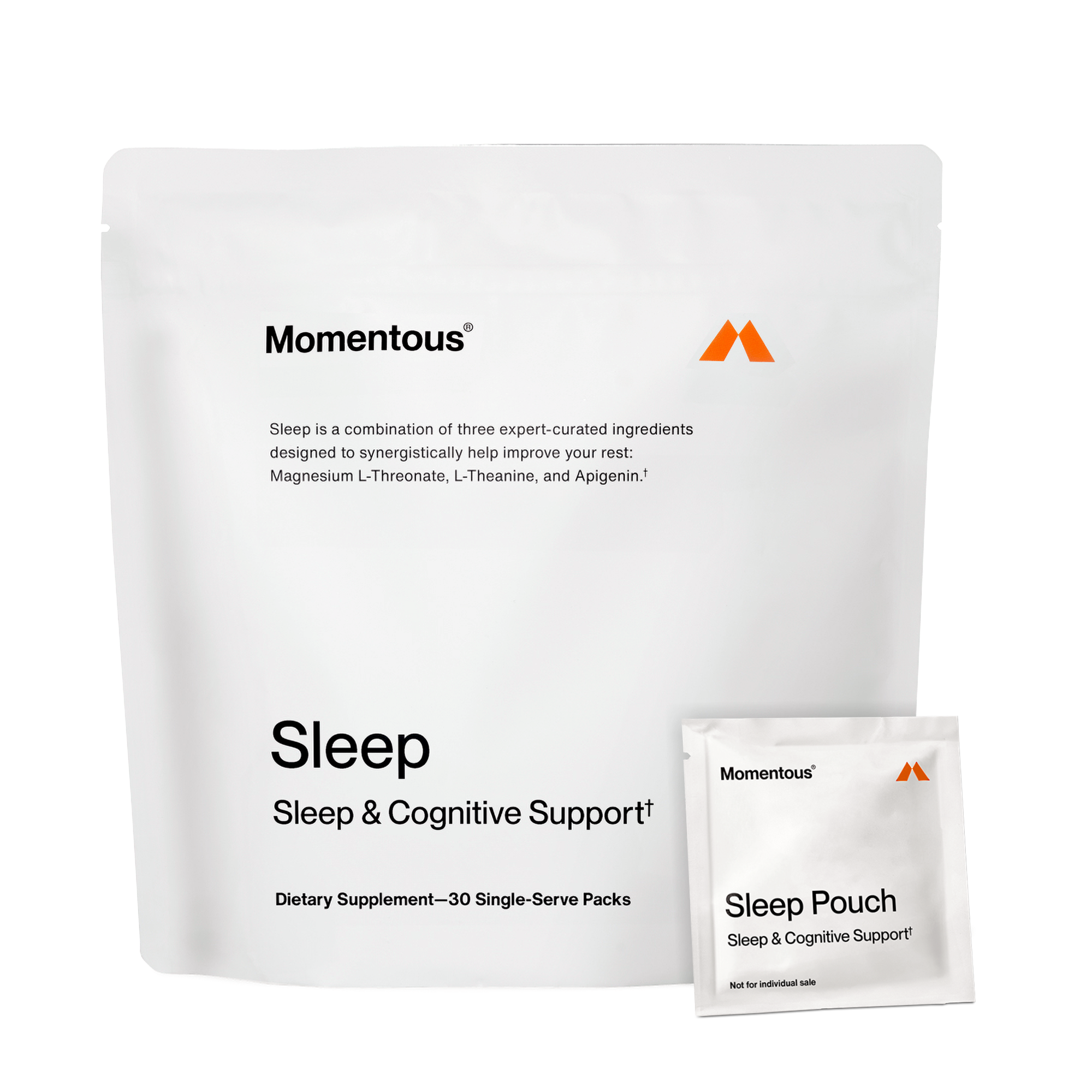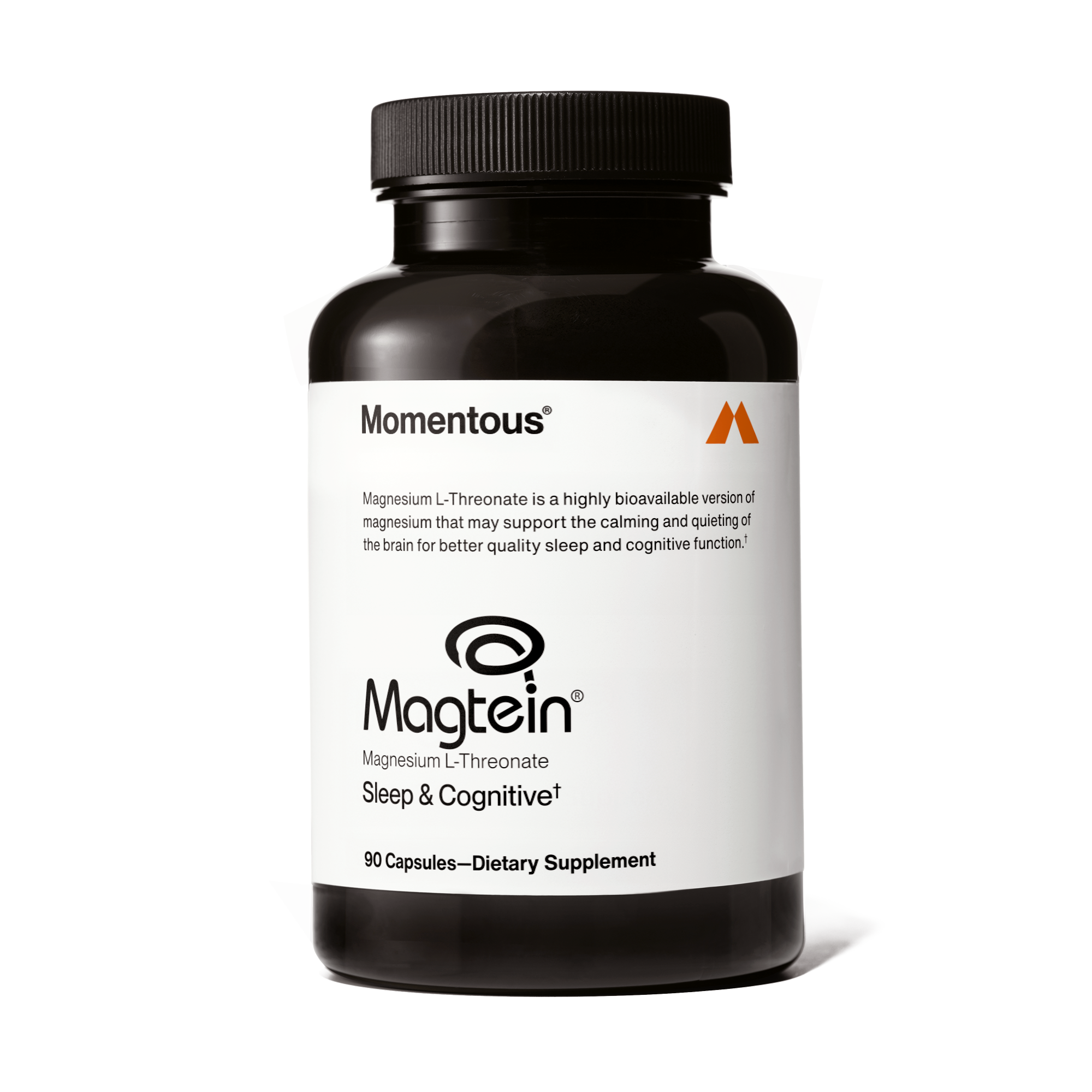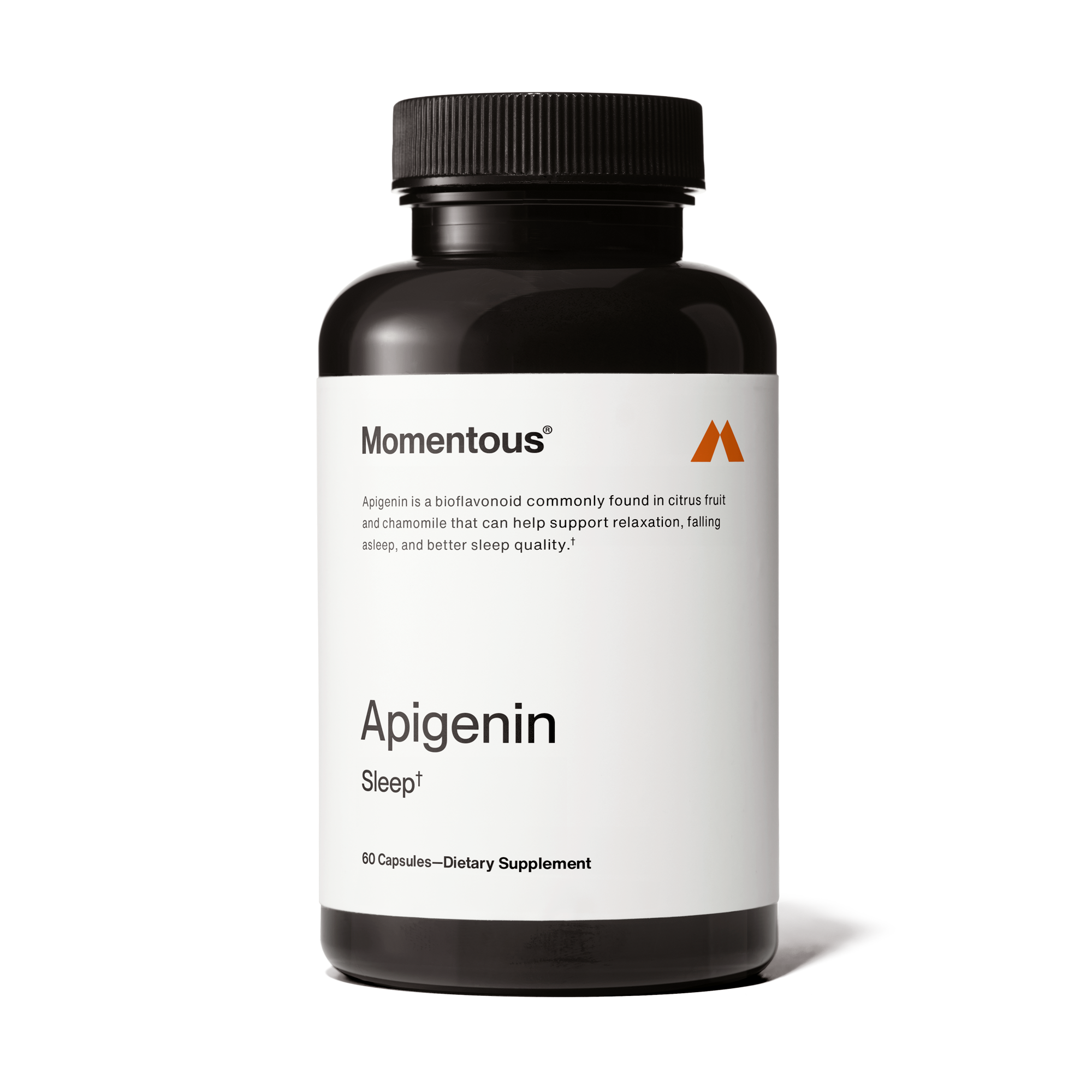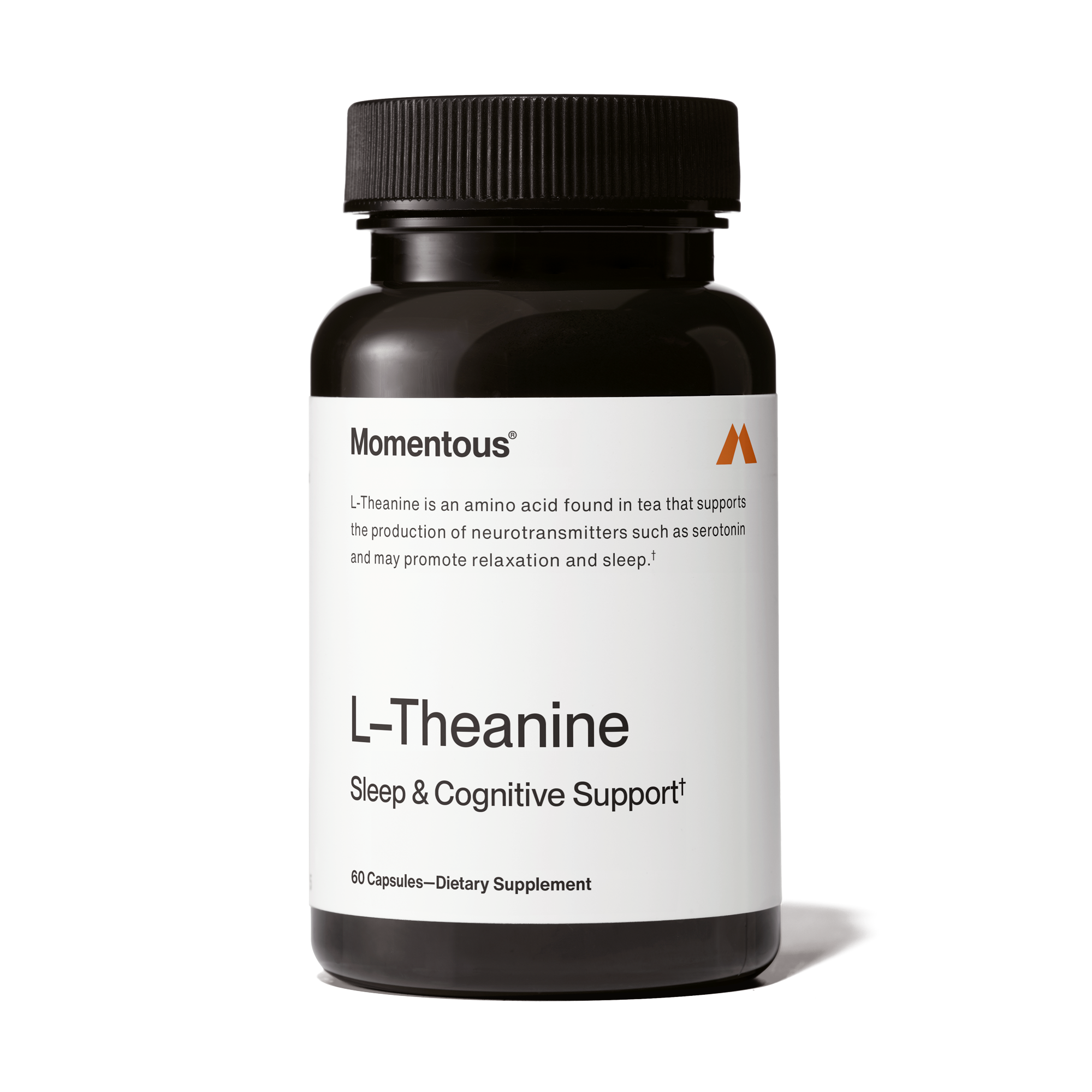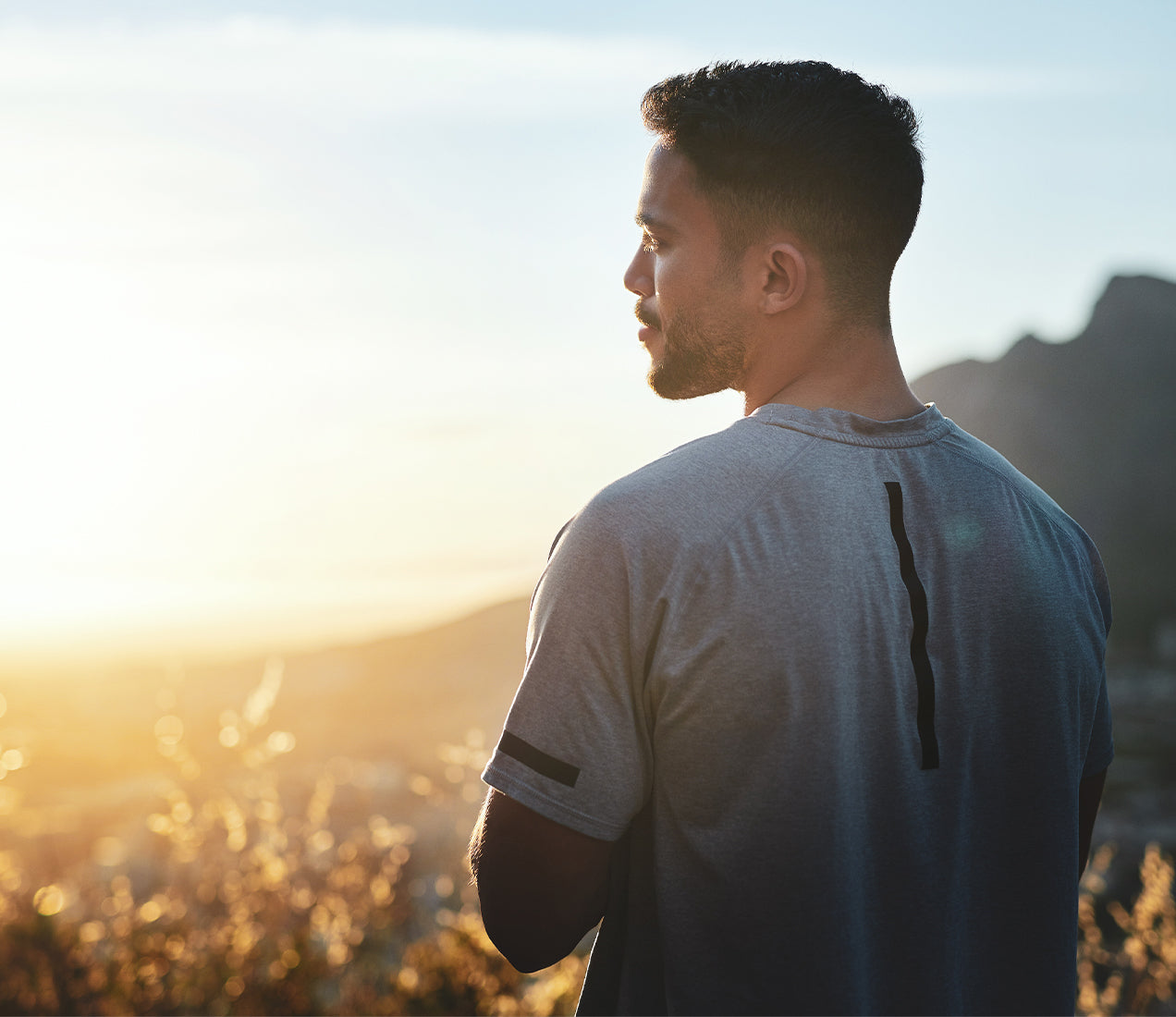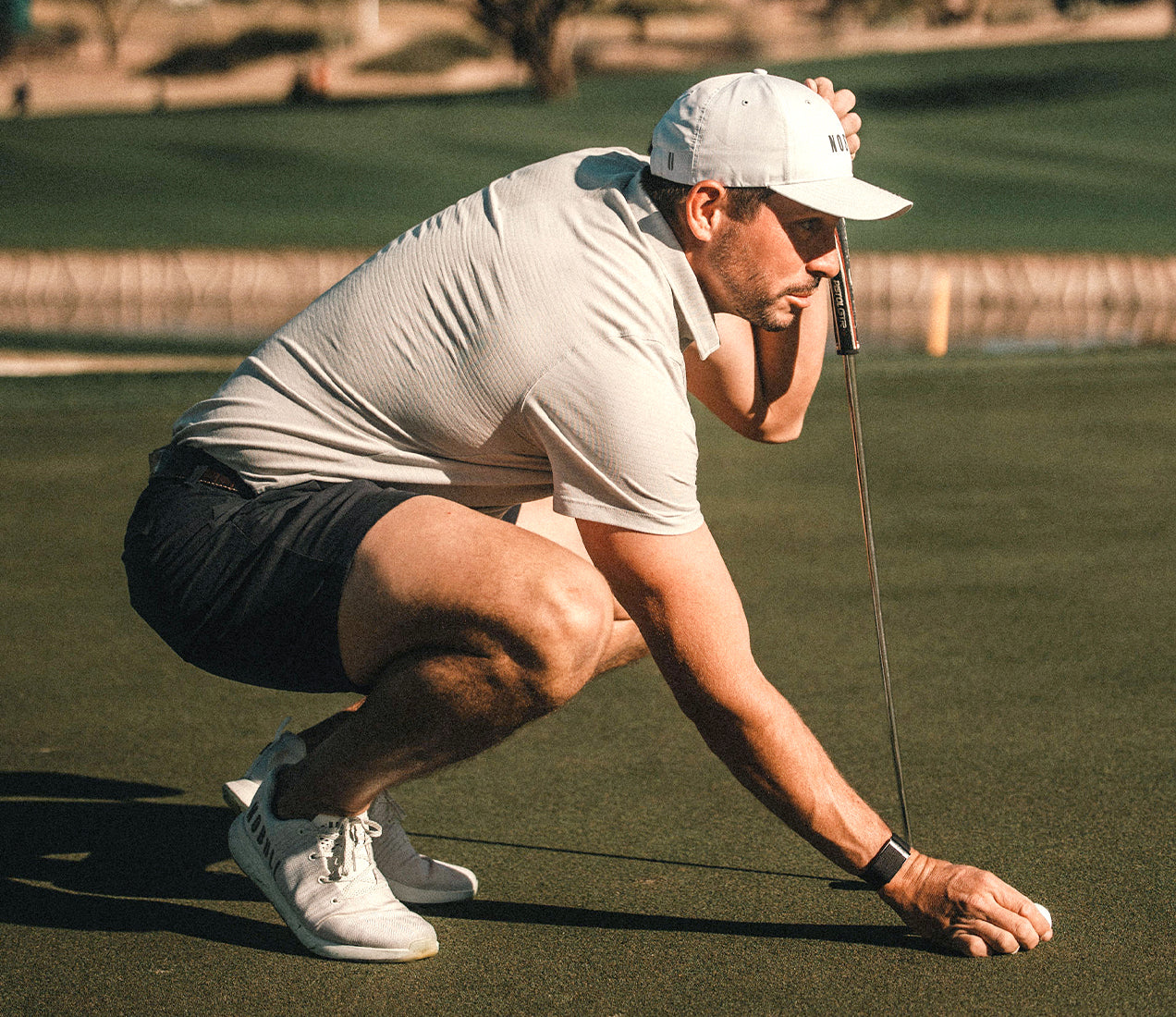Science-backed combination of Magnesium L-Threonate, L-Theanine + Apigenin to help optimize your sleep
Highly absorbable magnesium to support sleep, focus + brain health
Plant compound that promotes sleep and reduces stress
Supports calm, focus, and healthy stress response
Ah, daylight savings time. While we may enjoy the longer evenings, the tradeoff of losing an hour of sunlight in the morning can wreak havoc on our sleep patterns. And with a third of us already struggling to get enough sleep, this is a crucial time to prioritize our sleep hygiene. But don't worry; we’re here to help. We'll explore how light exposure affects our sleep and provide practical tips to make the most of it, so you can wake up refreshed and ready to take on the day.
How Light Affects Your Body
Inside your eyes are light-detecting cells called retinal ganglion cells. When these cells are exposed to light, they send signals to your body, indicating it's time to wake up. This process triggers the release of cortisol, which acts as a natural wake-up signal, helping you to stay alert and focused throughout the day. But that's not all. Light exposure also plays a critical role in regulating your circadian rhythm. When light hits your retinal ganglion cells, it also inhibits the production of melatonin, the hormone that makes you feel sleepy which kickstarts your body's internal clock by signaling wakefulness and priming you for activity.
Momentous partner Dr. Andrew Huberman puts it this way: "The main levers and tools that are going to allow you to control when you are awake and when you are asleep, and to get better sleep every single night, are light and darkness."
That's why daylight savings time can be especially challenging for our sleep patterns. When we "spring forward," we lose an hour of sleep and an hour of daylight in the morning, which can throw off our internal clock and make it challenging to fall asleep at night. Studies have shown that the time change can disrupt our sleep for several days or even weeks (1). That's why you should take steps to minimize the impact of this time change on your sleep, so you can stay well-rested and alert. Here are some practical tips to help you adjust to the time change and get the sleep you need.
Maximize Your Morning Sun Exposure
Your eyes are especially sensitive to light in the morning, so getting as much sunlight as possible when you wake up is essential. Aim to spend at least 5 minutes outside in bright sunlight within 60 minutes of waking up. Add another 5 minutes to your sun exposure time if it's a cloudy day. And if the sky is mainly overcast, spend 20-30 minutes outside. No matter how cool you look, it's best to avoid sunglasses that will filter much of the light out. And remember that getting sunlight through a window isn't as effective as being outside, so get some fresh air and natural light to start your day on the right foot.
"There are literally hundreds, if not thousands, of quality peer-reviewed papers showing that light viewing early in the day is the most powerful stimulus for wakefulness throughout the day and it has a powerful, positive impact on your ability to fall and stay asleep at night.”
Catch the Sunset for Better Sleep
Spending a few minutes outside in the evening, especially during sunset when the sun is at a low angle, can help signal to your body that it's time to wind down and prepare for sleep. This is because the neurons in your eye signal your circadian clock that the day is ending, making it easier to fall asleep later on. Plus, catching some natural light in the evening can offset the negative effects of artificial light exposure at night by adjusting your retinal sensitivity. Aim for 5-30 minutes of low-angle sunlight exposure without sunglasses in the evening. On bright, cloudless days, 5 minutes may be sufficient. Aim for 10 minutes on cloudy days and even more exposure on very overcast days to maximize the benefits.
Seeing the sun in the morning and catching the sunset in the evening is a key to good sleep. Again, Dr. Huberman has said, "Having those two signals arriving to your central clock, that your body knows when it's morning and knows when it's evening, is tremendously powerful." He says, "every cell and organ in your body needs light information. And the way to get that information to all those cells...is by viewing sunlight with your eyes." So, get outside and give your body the information it needs!
Create a Relaxing Evening Routine
To promote a restful night's sleep, minimizing your exposure to light, particularly blue light, in the evening is crucial. About 60 to 90 minutes before bedtime, start dimming the lights to prepare your body for sleep. Between 10 pm and 4 am, aim to minimize light as much as possible by avoiding bright overhead lights and using lower lighting sources, like dim lamps, instead. Limit your screen time during this period, including phone use and social media. Minimize light coming into your bedroom from electronics or other sources, and stay off your phone or computer near bedtime. Blue light, in particular, can suppress melatonin production and disrupt your circadian clock, making it harder to fall asleep.
Science-Backed Supplements
If you still struggle to get adequate rest despite following sleep hygiene best practices, consider taking some supplements supported by science to help you ease into sleep. One supplement to consider is Magnesium Threonate, a form of Magnesium that can cross the blood-brain barrier. Specifically, Magnesium Threonate at a dose of 145 mg has been shown to improve sleep quality and reduce the time it takes to fall asleep (2). Another supplement to consider is Apigenin, a flavonoid found in plants like chamomile. Taking 50 mg of Apigenin before bed has improved sleep quality and reduced anxiety levels (3). Lastly, Theanine, an amino acid found in tea leaves, can promote relaxation and improve sleep quality (4). Taking 100-400 mg of theanine before bed has been shown to reduce anxiety and enhance sleep quality in some studies.
Sleep is a crucial component of our overall health and well-being. By paying attention to our sleep hygiene, we can improve the quality of our sleep and feel more rested and refreshed. Whether you're a morning person or a night owl, soaking up some sunlight in the morning and catching the sunset in the evening can help regulate your internal clock and promote better sleep. Why not embrace these simple tips and make the most of this spring forward?
Want to learn more about light exposure and sleep? Check out the full episodes below of the Huberman Lab Podcast:
Sleep Toolkit: Tools For Optimizing Sleep and Sleep Wake Timing
Master Your Sleep and Be More Alert When Awake
----
(1) Kantermann, T., Juda, M., Merrow, M., & Roenneberg, T. (2007). The human circadian clock's seasonal adjustment is disrupted by daylight saving time. Current Biology: CB, 17(22), 1996–2000.
(2) Liu, G., Weinger, J. G., Lu, Z.-L., Xue, F., & Sadeghpour, S. (2016). Efficacy and safety of MMFS-01, a synapse density enhancer, for treating cognitive impairment in older adults: A randomized, double-blind, placebo-controlled trial. Journal of Alzheimer’s Disease: JAD, 49(4), 971–990.
(3) Kim, J.-W., Kim, C.-S., Hu, Z., Han, J.-Y., Kim, S. K., Yoo, S.-K., Yeo, Y. M., Chong, M. S., Lee, K., Hong, J. T., & Oh, K.-W. (2012). Enhancement of pentobarbital-induced sleep by apigenin through chloride ion channel activation. Archives of Pharmacal Research, 35(2), 367–373.
(4) Liang, Y.-R., Liu, C., Xiang, L.-P., & Zheng, X.-Q. (2015). Health benefits of theanine in green tea: A review. Tropical Journal of Pharmaceutical Research: TJPR, 14(10), 1943.



